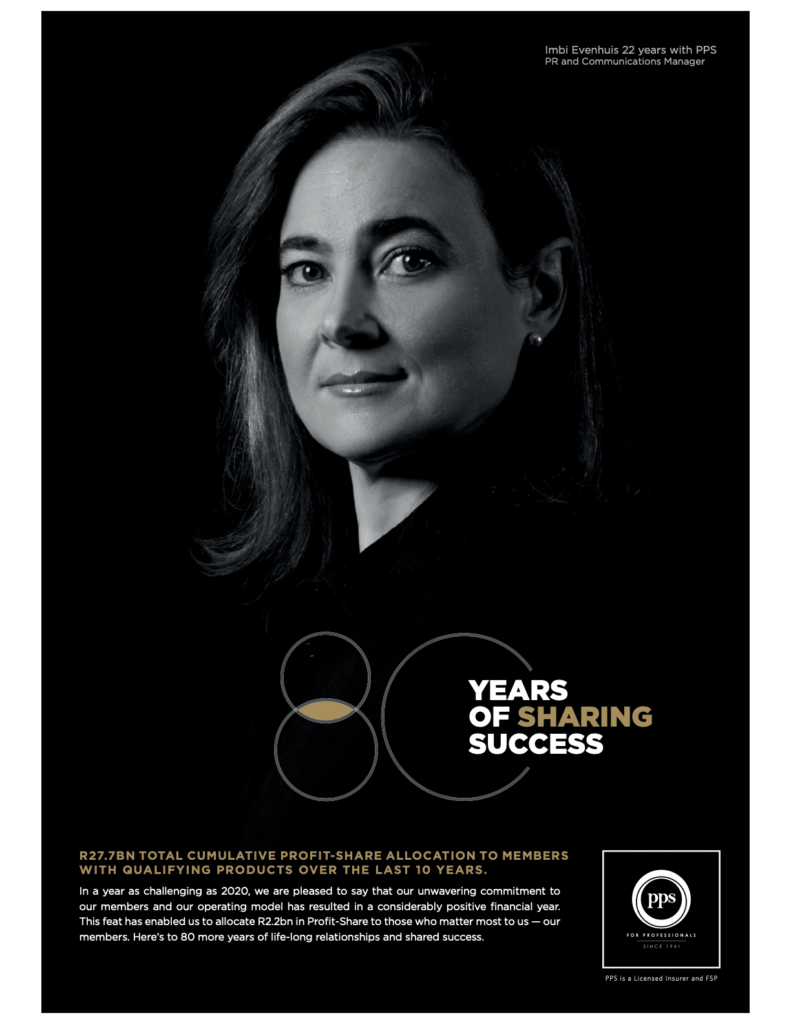Wilma van der Walt, executive of customer experience and operations at PPS Short-Term Insurance

Nations, activists and scientists are haggling over emission reduction commitments at the United Nations Climate Change Conference of the Parties (COP26) in Glasgow, Scotland in an attempt to come up with global heating solutions.
Although some activists feel that the conference is just a talk shop that achieves little, keeping climate change on top of the global agenda is better than having to contend with the dangers of disregarding this crisis. It is generally accepted that global heating contributes to adverse weather such as floods, hurricanes, and droughts, resulting in massive damage to buildings, vehicles and produce. What is less appreciated, is how these impact everyday life, including the cost of necessities such as insurance and the price of food.
A recent report from S&P Global highlights that the increasing frequency and severity of natural catastrophes are causing insurers to review their offerings. This might lead to higher premiums. Besides the obvious physical hazard these natural disasters present, there are other possibilities such as liability risks. These include when parties who have suffered damages from the effects of climate change will seek compensation from reinsurers. The consequence of this is an increase in reinsurance premiums.
Locally, weather-related loss incidents are increasing in frequency and severity due to changing global climate conditions that spark extreme heatwaves and difficult-to-contain wildfires. South Africa has also suffered from frequent flash floods, blustery winds and hailstorms.
A new Willis Re Hail Catastrophe Risk Model for South Africa shows seven of the top 10 insured natural catastrophe events since the 1970s have been associated with hail, with upwards of 45% of the total value of insured motor and property claims from natural perils over that period caused by hail damage.
“The frequency coupled with the potential for severe loss accumulations can threaten insurers’ earnings stability (their ability to pay dividends to their shareholders). Motor books are particularly susceptible to large hail claims,” says Geoffrey Saville, head of weather and climate risks research at Willis Re.
For many South African insurers, Saville adds, a violent hailstorm over Johannesburg’s N1 western bypass at peak rush hour would probably be one of their worst nightmares. Since thunderstorms (which often produce hail) tend to develop in the afternoon and early evening in the summer inland, this is a very real possibility.
Given this scenario, insurers will have to analyse pricing and exposure management, considering ways to price for these events based on underwriting criteria against the insured’s profile.
Understanding the varying exposure that different perils may have on property helps when the weather history for the specific area is considered along with the classification of property size and age. Other elements to be considered include distance measures from rivers, lakes, sea, forests and farms, location to large water bodies, breakaway wildfires and seismic activity.
Nyasha Madzingira, Client Manager at Aon South Africa’s Commercial Risk Solutions Division, says because climate change plays an increasingly prominent role in weather-related damages, the insurance industry (and clients) must become knowledgeable of developments in the climate and weather space.
Everyone should all play an active role in mitigating the risk that global heating poses to the quantum and severity of short-term insurance claims. Failure to do our part will cause recurring increases in insurances premiums.
“It is in our industry’s best interests to promote and drive a green agenda that seeks to support our clients in transitioning to more sustainable, environmentally aware business models, for all our sakes, and for now and the future,” Madzingira says.
As an emerging market coupled with significant socio-economic challenges, including a struggling economy, high unemployment, educational and healthcare risks, the impact of extreme weather patterns must be considered when modelling the insurance support required by individuals and businesses to ensure sustainability.


